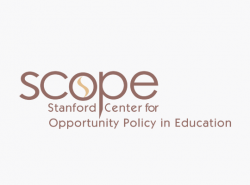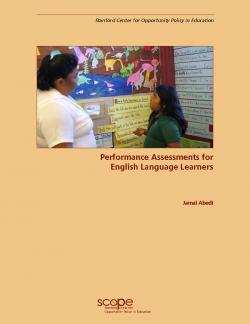Implications of Income-Based School Assignment Policies for Racial School Segregation

In this article, Sean Reardon et al. challenge the assumption that income integration guarantees racial desegregation in U.S. schools.

In this article, Sean Reardon et al. challenge the assumption that income integration guarantees racial desegregation in U.S. schools.

This report from the Legal Defense Fund argues that if the gap in college enrollment and graduation persists, we risk losing a generation of African-American youth.
SCOPE is working with the John O'Connell High School staff in the San Francisco Unified School District to provide professional development to support the school's learning academies.
Study Visits are inquiry-based mini courses to exemplary high schools conducted by the Stanford Center for Opportunity Policy in Education (SCOPE) and a partner school.
LEADS applied cutting-edge knowledge from scholars and practitioners in education, business, and design to the complex challenges confronting urban school systems. It served six districts around the country.

Jamal Abedi discusses how performance assessments can be efficiently used to instruct English language learners.

Diane Friedlaender et al. take a look at the lessons we can learn from the schools that are successfully addressing the achievement gap in California.
In this blog, cross-posted from Change.org, Linda Darling-Hammond looks at the state of education in America on the 56th anniversary of Brown v. Board of Education.
With the release of the latest NAEP scores, Linda Darling-Hammond talks about the real reasons behind America's achievement gap in this blog cross-posted from the National Journal.
Darling-Hammond asks, Rather than pitting under-prepared teachers against others in comparisons of effectiveness, how can policies provide well-qualified teachers to low-income students of color?